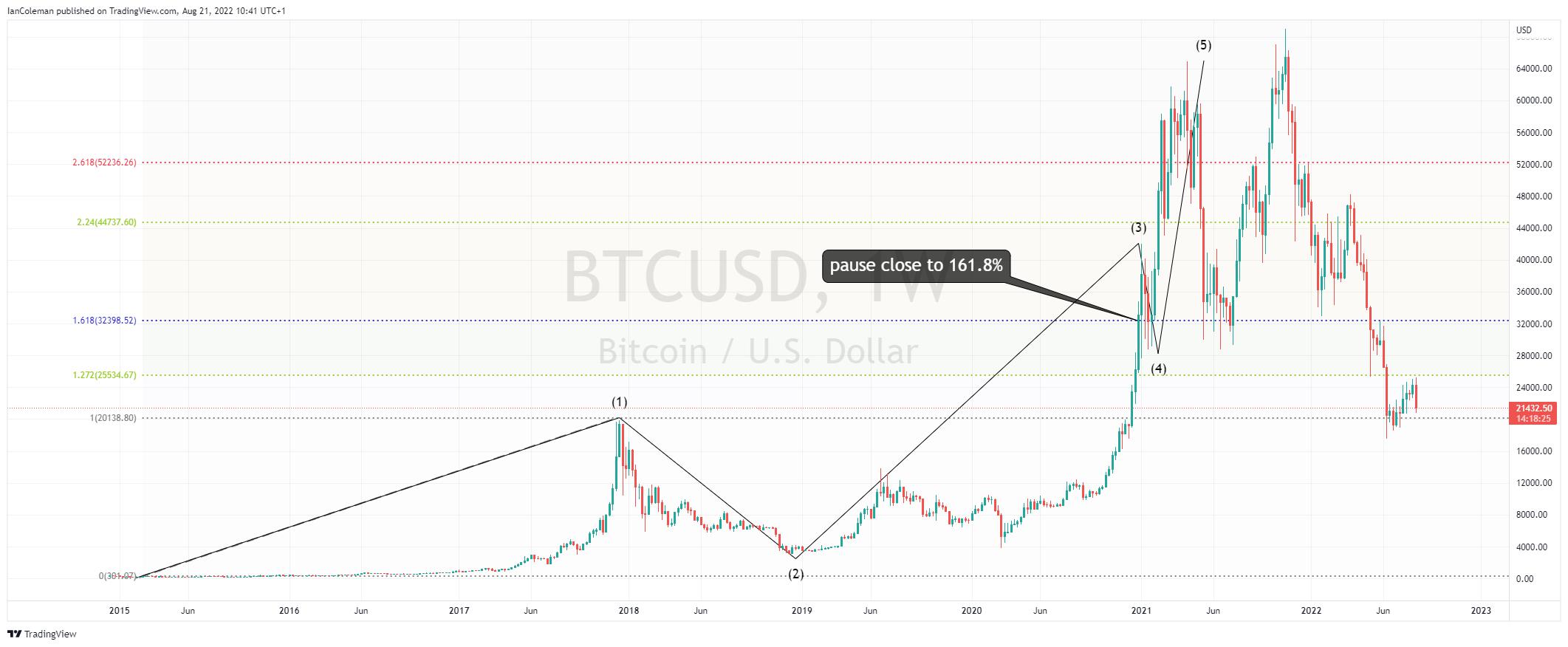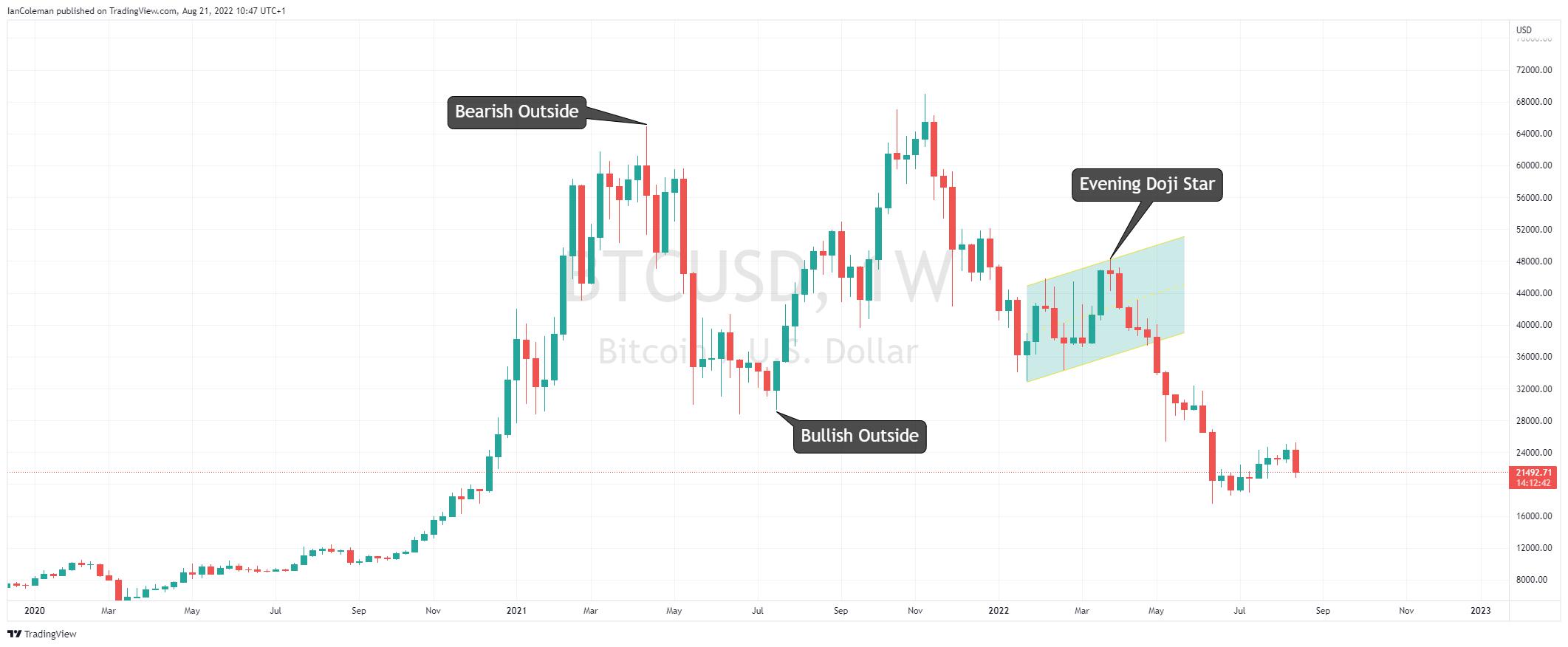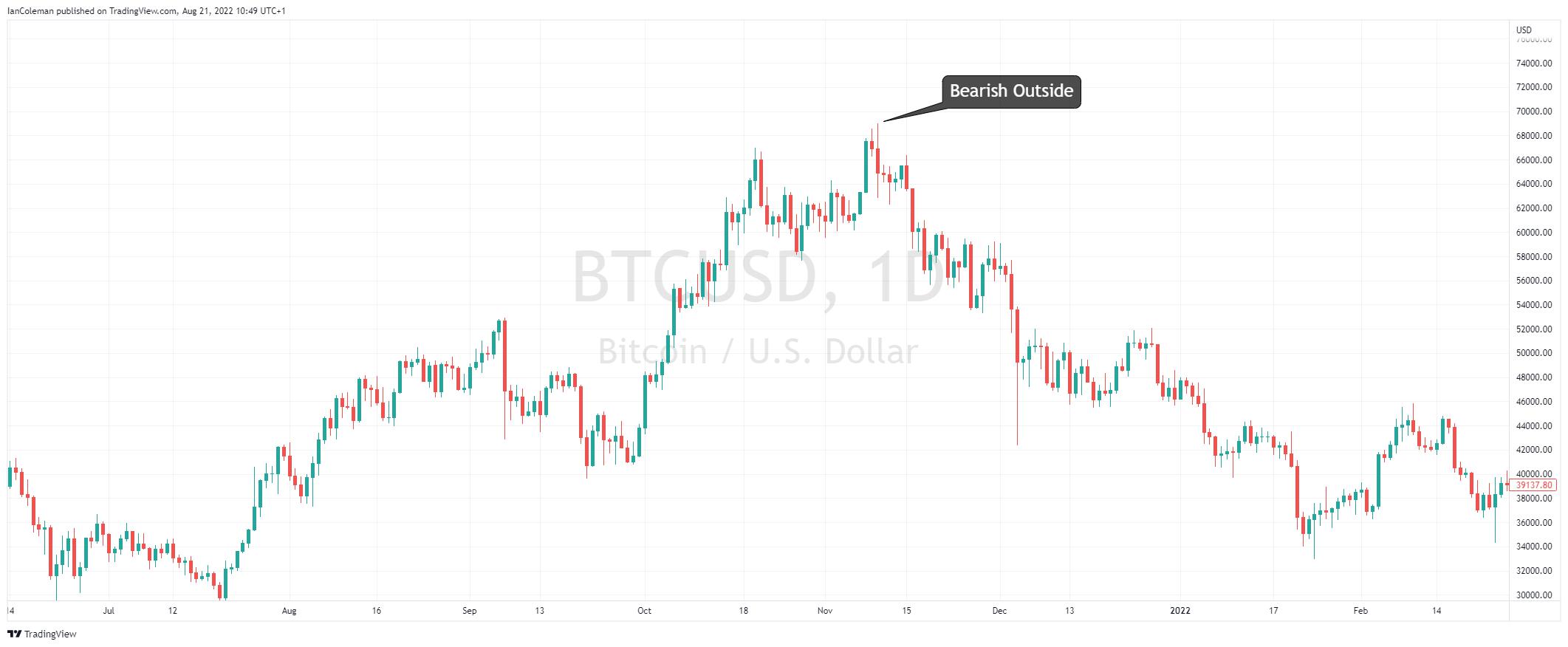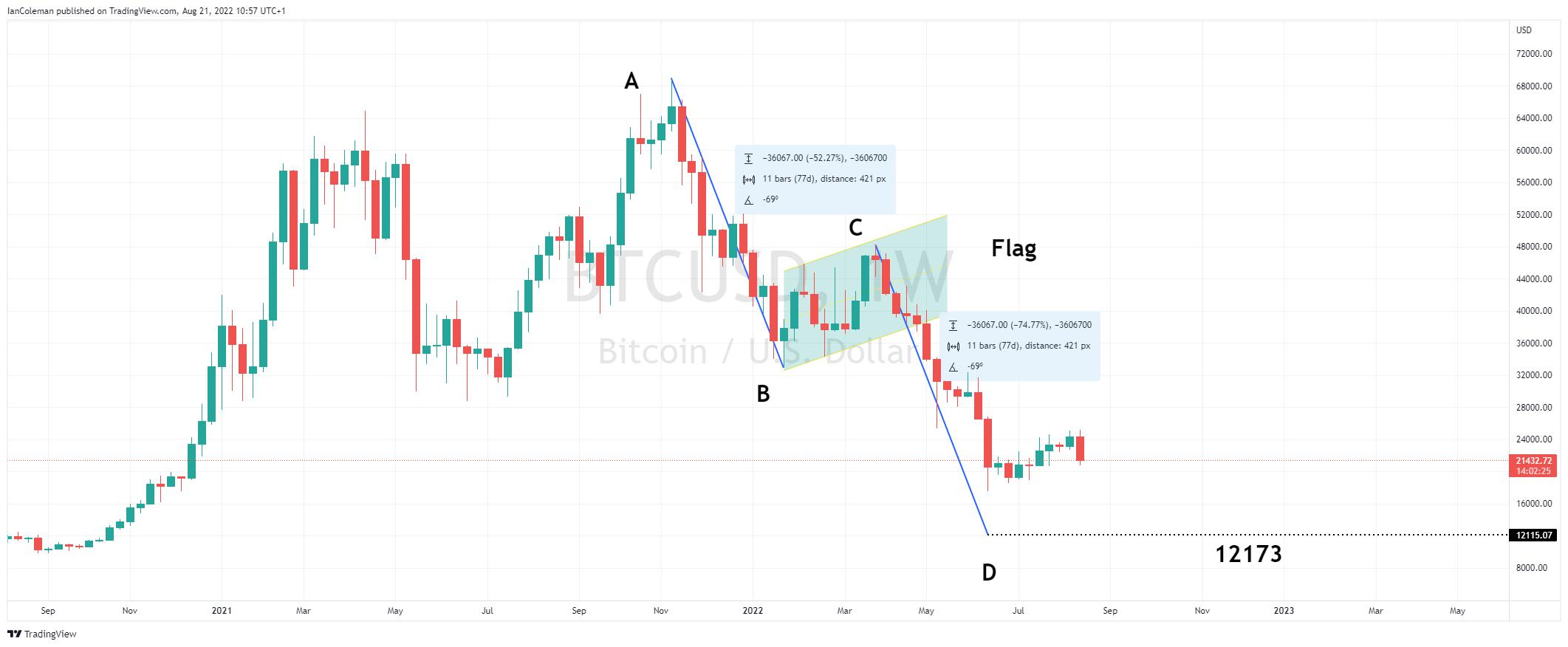Learn to trade
A look at the previous and current Bitcoin crashes

Let us first look at the peaks
Before we look at the latest Bitcoin crash, let us look at the price action since the birth of the major cryptocurrency. We are going to break down the move using the Elliott Wave theory and chart patterns.
If we look at the weekly timeframe, we can see some of the characteristics of Elliott Wave. This is a five-wave impulsive move to the upside, with a pause in the rally close to the 161.8% extension, forming the 4th wave.
Figure 1 Trading View BTCUSD weekly Elliott Wave
What is out of character for Elliott Wave is the fact that BTCUSD then made a new swing high in November 2021. We say ‘out of character’ as Elliott Wave still allows the overshoot, calling this a 5th wave extension.
Characteristics of the turning points
Now have the possible Elliott Wave theory, what are the characteristics of the Bitcoin crashes?
The turning points have been highlighted with solid reversal candle formations. The weekly chart highlights bearish and bullish Outside Bars and an Evening Doji Star at the latest swing high.
Figure 1 Trading View turning points
The daily chart highlights a bearish Outside Candle on the 10th of November, at the all-time high, before the current Bitcoin crash.
Where could we possibly see a base according to the Elliott Wave theory
The latest Bitcoin crash looks to have formed a bearish Flag pattern on the weekly chart. To calculate the measured move target of the flag, we take the length of the flagpole (A-B) and project that measurement from the high of the flag, down in the C-D leg. This gives us a projected level of 12173.
Figure 1 Trading View BTCUSD weekly Flag formation and target
It is a common characteristic of Elliott Wave corrections to form an AB=CD pattern.
As Bitcoin has behaved so well with regards to turning candle formations, perhaps we will see a bullish Outside Candle or a Morning Doji Star at the base!
For more information on candle formations, follow this link.
Related articles
The material provided here has not been prepared in accordance with legal requirements designed to promote the independence of investment research and as such is considered to be a marketing communication. Whilst it is not subject to any prohibition on dealing ahead of the dissemination of investment research we will not seek to take any advantage before providing it to our clients.
Pepperstone doesn’t represent that the material provided here is accurate, current or complete, and therefore shouldn’t be relied upon as such. The information, whether from a third party or not, isn’t to be considered as a recommendation; or an offer to buy or sell; or the solicitation of an offer to buy or sell any security, financial product or instrument; or to participate in any particular trading strategy. It does not take into account readers’ financial situation or investment objectives. We advise any readers of this content to seek their own advice. Without the approval of Pepperstone, reproduction or redistribution of this information isn’t permitted.





